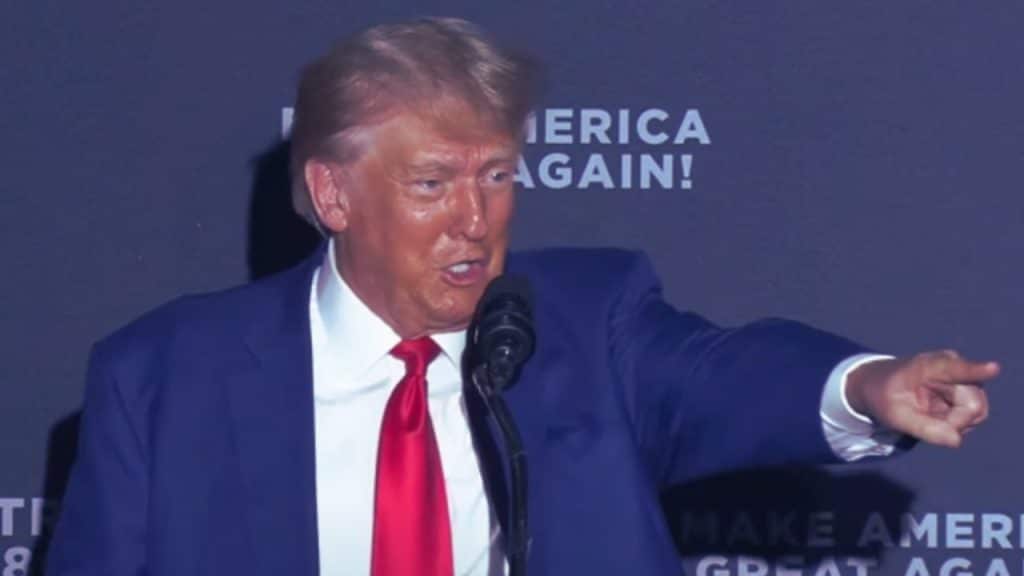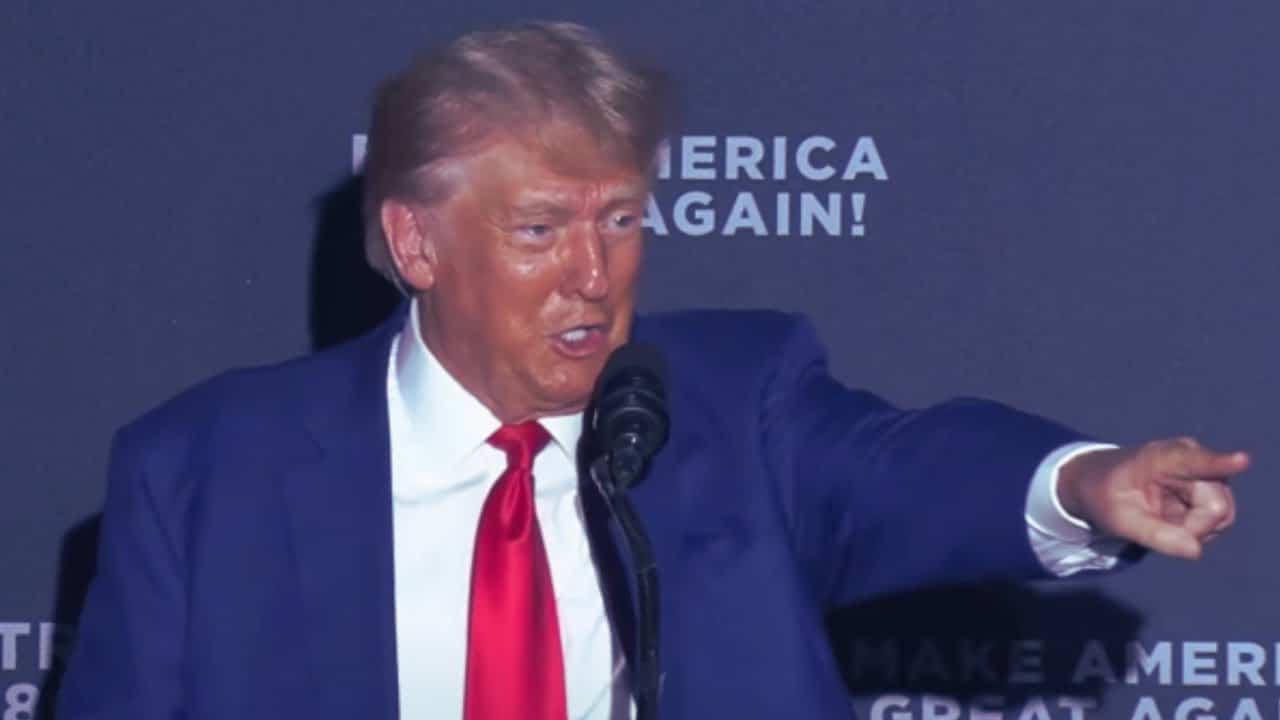March 28, 2024
Permission to republish original opeds and cartoons granted.
Trump and his campaign were targeted with FISA in 2016 for having different foreign policy views, and it doesn’t look like Congress will do anything about it

By Robert Romano
There is not much news to report on the reauthorization of Section 702 of the Foreign Intelligence Surveillance Act (FISA) with all quiet amid Congress in recess for spring break.
The last action Congress took was to pass a short-term extension of existing provisions until April 19 amid competing bills from the House Judiciary Committee and the House Intelligence Committee.
After House Judiciary Committee Chairman Jim Jordan (R-Ohio) had his own committee’s bipartisan proposal, “The Protect Liberty and End Warrantless Surveillance Act,” gutted by the House Intelligence Committee and reintroduced as H.R. 7320, Jordan said that without the warrant protections for Americans, any other bill was dead on arrival.
In an interview with Fox News’ Brian Kilmeade, Jordan declared, “So that is a huge issue that has to be in the bill or we should not reauthorize FISA. It has to be in there.”
Jordan added, “the way our system works is there are separate and equal branches of government, you can’t just have the executive branch police themselves, you have to go to another branch of government, the judicial branch, to get a probable cause warrant.”
But it’s not in the new bill, Jordan warned, saying that in every other judicial process there’s a warrant, but not in FISA: “That happens all the time, every single day in this country, that is a standard we’ve had around since the place started. So let’s make sure that same standard exists particularly when we know that the FBI abused this process 278,000 times they didn’t follow their rules, improperly quer[ying] this database.”
The House Judiciary Committee version of the bill would have prohibited accessing surveillance of American citizens located in the United States for non-intelligence purposes without a search warrant for “law enforcement purposes,” stating, “no officer or employee of the United States may conduct a query of information acquired under this section in an effort to find communications or information the compelled production of which would require a probable cause warrant if sought for law enforcement purposes in the United States, of or about 1 or more United States persons or persons reasonably believed to be located in the United States at the time of the query or the time of the communication or creation of the information.”
But that provision — minimal as it is — is proving to be a non-starter for the House Intelligence Committee, which has had it stripped in its own version.
In fact, this provision would not have prohibited the Carter Page FISA warrant issued in 2016 against the Trump campaign per se, which was issued because Page was suspected of being a foreign agent. The Oct. 2016 application to the FISA Court stated, “The target of this application is Carter W. Page, a U.S. person, and an agent of a foreign power… The status of the target was determined in or about October 2016 from information provided by the U.S. State Department…”
To make the accusation, as the FBI and the Justice Department had to give the FISA Court a “statement of the facts and circumstances relied upon by the applicant to justify his belief that… the target of the electronic surveillance is a foreign power or an agent of a foreign power…” under 50 U.S. Code § 1805(a)(2)(A). That would remain the law.
Those allegations relied on the Clinton campaign and DNC-financed Christopher Steele dossier that there was a “well-developed conspiracy” by Russia and the Trump campaign to hack the DNC and give their emails to Wikileaks.
But they also stated as part of the justification for that interference in the Trump campaign that Russia was attempting to convince the Trump campaign to not send weapons to Ukraine and to instead recognize Russia’s annexation of Crimea in Ukraine, telling the FISA Court that the Trump campaign, per the FISA application, “worked behind the scenes to make sure [the Republican] platform would not call for giving weapons to Ukraine to fight Russian and rebel forces” stating Trump “might recognize Crimea as Russian territory and lift punitive U.S. sanctions against Russia,” citing news reports.
The Justice Department also included an Aug. 2016 Politico story highlighting Trump’s opposition to U.S. intervention in Ukraine, including his suggestion the people of Crimea preferred to live in Russia, and his doubts that the territories Russia had seized could be reclaimed suggested without risking World War III.
At a Harrisburg, Pennsylvania, the Politico report relied upon by the Justice Department quoted Trump saying a military conflict to take back Crimea would risk nuclear war: “You wanna go back? …You want to have World War III to get it back?” And it quoted Trump on ABC’s “This Week” suggesting the people of Crimea supported Russian annexation: “The people of Crimea, from what I’ve heard, would rather be with Russia than where they were.”
So, the baseline allegation against Trump and his campaign leading to the targeting via FISA in 2016 was simply for having different foreign policy views, and then supposedly having contacts with a foreign adversary that were concocted by Trump’s political opponent, which was motivated by the fact that he had different foreign policy views.
And it doesn’t look like Congress will do much about it, since even the legislation up for consideration does not appear to have been designed to have prevented Russiagate, although it does appear to strengthen some of the requirements and oversight for obtaining surveillance. As it is, both sides are set in their positions and so there may yet be a vanilla bill offered by House leadership as a status quo default provision that will ultimately be voted on it.
So far, the failures to rein in censorship programs via the omnibus spending bills that just passed, plus overwhelming support for banning TikTok or any other application deemed to be a “foreign adversary-controlled” appear to show what direction the FISA reauthorization is headed in, which is there’s about 300 House members or so who don’t care much about reforming the system (or are too frightened to take a stand on it) and are okay with political candidates, campaigns and functionaries being subjected to surveillance should they similarly step out of line on U.S. foreign policy.
Unfortunately, there may not be a prohibition that can be drafted and enacted against the fear of members being targeted next if they don’t toe the line.
Robert Romano is the Vice President of Public Policy at Americans for Limited Government.
Cartoon: Torchbearer
By A.F. Branco

To view online: https://dailytorch.com/2024/03/cartoon-torchbearer/


